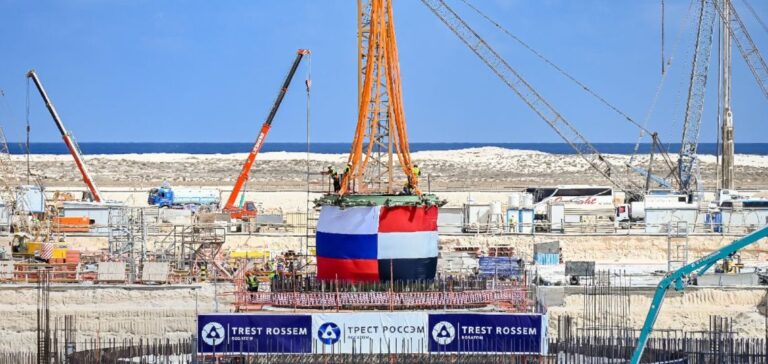Russian manufacturer Rosatom has completed welding operations on the main body of the reactor intended for the first unit of the El Dabaa nuclear power plant, located approximately 320 kilometres north-west of Cairo. The component, measuring 11.45 metres in length and 5.7 metres in width, was assembled at the Izhora site in Saint Petersburg following a ten-day process that required continuous heating of the seams. Around two tonnes of flux and more than 1.5 tonnes of special wire were used during the operation.
Inspection procedures and heat treatment
Following the welding stage, the reactor will undergo heat treatment and a comprehensive series of technical inspections. These include radiographic, ultrasonic and capillary testing of the welded areas, in accordance with industrial safety requirements. According to Rosatom, these procedures are designed to ensure safe operation of the plant for a minimum of sixty years.
The reactor is scheduled for delivery to the Egyptian site later this year. It is the first of four planned VVER-1200 reactors for the El Dabaa facility, a technology already in use at the Leningrad and Novovoronezh nuclear power plants in Russia, and the Ostrovets plant in Belarus.
Contractual framework and bilateral cooperation
The contractual agreements for the plant’s construction came into force on 11 December 2017. Under these contracts, Rosatom is responsible not only for the engineering and construction of the facility, but also for supplying Russian nuclear fuel throughout its operational lifespan.
The Russian company has also committed to training Egyptian operators and providing technical support for the plant’s first ten years of operation. The agreement further includes the construction of a dedicated storage facility and the delivery of containers for spent nuclear fuel. These obligations reflect a strategic cooperation between the two countries, focused on establishing stable civilian nuclear capacity.





















